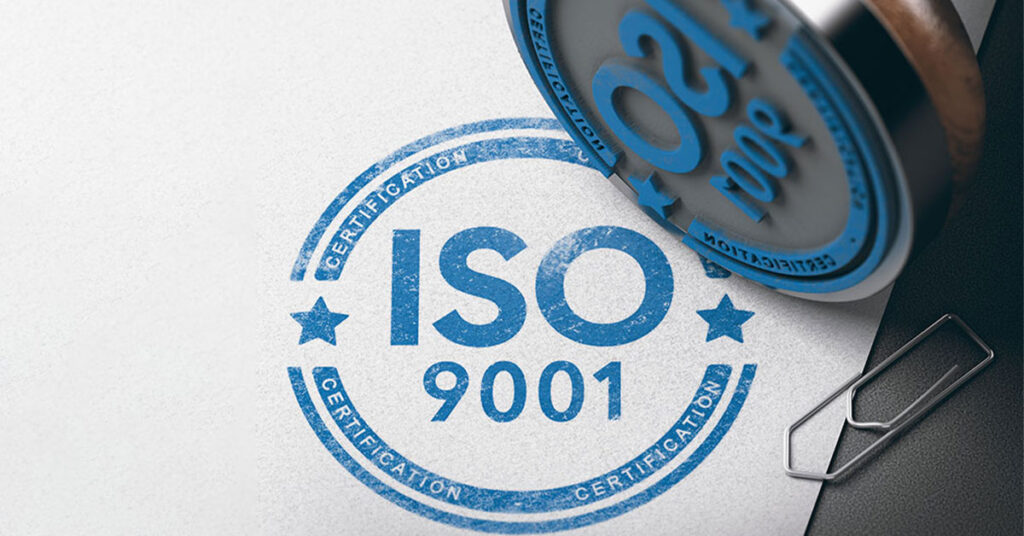
In today’s competitive business landscape, maintaining high standards of quality and continually improving processes is essential for success. One of the most recognized frameworks for achieving these goals is ISO 9001, a global standard for quality management systems (QMS). Companies across various industries are adopting this certification to ensure that their processes meet the highest quality standards. In Pakistan, the significance of ISO 9001 is growing, as businesses aim to enhance their operations and align with international standards. The implementation of ISO 9001 in Pakistan has become a crucial step for organizations that want to stay competitive in the global market while driving continuous improvement through innovation.
The relationship between ISO 9001 and innovation may not be immediately apparent to some, but they are closely interconnected. Many organizations in Pakistan are now using the ISO 9001 framework not only to ensure quality but also to foster innovation and continuous improvement. By enrolling in an ISO 9001 course in Pakistan, professionals can gain a deeper understanding of how to apply these principles in their own organizations. Such training empowers businesses to innovate more effectively while maintaining consistent quality.
The Importance of ISO 9001 in Pakistan
As Pakistani businesses increasingly operate on a global stage, meeting international quality standards becomes crucial. ISO 9001 in Pakistan plays a pivotal role in helping businesses achieve these standards. Companies that obtain ISO 9001 certification demonstrate their commitment to quality, which can lead to improved customer satisfaction, better operational efficiency, and stronger business relationships. In an era where customer demands are continuously evolving, the ability to innovate while maintaining consistent quality is a key driver of success.
Moreover, businesses that adopt ISO 9001 in Pakistan are better positioned to streamline their operations, reduce costs, and improve product quality. These improvements often lead to a stronger competitive position in both local and international markets. With innovation at the heart of continuous improvement, companies that adopt ISO 9001 standards are encouraged to regularly evaluate their processes and seek out new ways to improve. This creates a culture of continuous improvement, where innovation is not just a goal but a part of everyday operations.
How ISO 9001 Fosters Innovation
ISO 9001 is often seen as a tool for maintaining quality, but its framework can also drive innovation in several ways. The standard encourages organizations to focus on customer satisfaction, process improvement, and risk management. By systematically analyzing processes and identifying areas for improvement, companies can uncover opportunities for innovation.
1. Customer-Centric Innovation
A key component of ISO 9001 is its focus on meeting customer needs. This customer-centric approach ensures that businesses are constantly innovating to deliver products and services that better meet the evolving demands of their clients. By focusing on customer feedback and incorporating it into process improvements, businesses in Pakistan can leverage ISO 9001 to create more innovative and tailored solutions.
2. Process Innovation and Optimization
Innovation is not limited to products; it also extends to processes. ISO 9001 in Pakistan emphasizes continuous improvement in processes, which can lead to innovative ways of doing business. For example, by reviewing production workflows, companies might discover more efficient methods, better use of technology, or new approaches to quality control that reduce waste and improve productivity. This type of innovation can enhance overall business performance and reduce operational costs.
3. Risk-Based Thinking
ISO 9001’s emphasis on risk management also contributes to innovation. The standard encourages businesses to anticipate potential issues and take proactive steps to mitigate them. This risk-based thinking often leads to innovative solutions that can prevent problems before they arise, rather than simply reacting to them. For Pakistani businesses operating in dynamic and unpredictable markets, such foresight can be a significant competitive advantage.
The Role of ISO 9001 Course in Pakistan
To fully harness the benefits of ISO 9001, professionals need a thorough understanding of the standard’s principles and how they can be applied in practice. Enrolling in an ISO 9001 course in Pakistan can provide individuals and organizations with the knowledge and tools they need to implement and maintain ISO 9001 effectively. These courses cover a range of topics, including the fundamentals of quality management, the requirements of the standard, and practical techniques for continuous improvement.
By taking an ISO 9001 course in Pakistan, participants can learn how to:
- Develop a quality management system that aligns with ISO 9001 standards.
- Integrate continuous improvement processes that foster innovation.
- Conduct internal audits and performance evaluations.
- Apply risk management strategies to prevent issues before they impact quality.
- Utilize customer feedback to drive product and service improvements.
Benefits of an ISO 9001 Course
- Improved Operational Efficiency
One of the most significant advantages of enrolling in an ISO 9001 course in Pakistan is the ability to improve operational efficiency. Participants gain insights into how to streamline processes, reduce waste, and improve overall productivity. These improvements not only enhance business performance but also open the door to more innovative ways of operating. - Enhanced Decision-Making
The knowledge gained from an ISO 9001 course enables professionals to make more informed decisions regarding quality management. This improved decision-making capacity can lead to the identification of opportunities for innovation and continuous improvement, ensuring that businesses remain competitive and forward-thinking. - Greater Customer Satisfaction
An ISO 9001 course emphasizes the importance of customer satisfaction, teaching participants how to better understand and respond to customer needs. This focus on customer-centric innovation allows businesses to develop products and services that are more closely aligned with customer expectations, leading to greater satisfaction and long-term loyalty. - Increased Competitiveness
By adopting ISO 9001 standards and continuously improving their processes, businesses in Pakistan can become more competitive. The knowledge gained from an ISO 9001 course provides organizations with the tools they need to innovate and adapt to changing market conditions, ensuring that they remain leaders in their industries.
Innovation and Continuous Improvement: A Symbiotic Relationship
Innovation and continuous improvement are inherently linked within the ISO 9001 framework. Continuous improvement refers to the ongoing effort to improve products, services, and processes, while innovation involves creating new, better solutions. By fostering a culture of continuous improvement, businesses can create an environment where innovation thrives.
Continuous Improvement Through ISO 9001
The concept of continuous improvement is embedded in the principles of ISO 9001. Organizations are encouraged to regularly review their processes, set measurable goals, and monitor performance. This regular evaluation helps identify inefficiencies and areas for improvement, which can lead to innovative changes.
For instance, companies can use the Plan-Do-Check-Act (PDCA) cycle, a core aspect of ISO 9001, to drive continuous improvement. This iterative approach allows businesses to experiment with new ideas, measure their effectiveness, and make adjustments based on feedback. Over time, these incremental improvements can lead to significant innovations that enhance overall business performance.
Fostering a Culture of Innovation
By adopting ISO 9001 in Pakistan, businesses can create a culture of innovation where employees are encouraged to think critically about their work and suggest improvements. When employees are empowered to contribute ideas, they become more engaged in the process of innovation. This not only leads to better products and services but also strengthens the company’s ability to adapt to changing market conditions.
Integrating Innovation Into Daily Operations
For innovation to be truly effective, it must be integrated into daily operations. ISO 9001 course in Pakistan provides a structured framework for doing this by encouraging regular performance evaluations, risk assessments, and process improvements. When innovation becomes part of the routine, businesses are better able to respond to challenges, seize opportunities, and maintain a competitive edge.
Conclusion: The Future of ISO 9001 and Innovation in Pakistan
The implementation of ISO 9001 in Pakistan is more than just a way to ensure quality; it’s a pathway to innovation and continuous improvement. By adhering to the principles of ISO 9001, businesses can enhance their operations, improve customer satisfaction, and drive sustainable growth. Furthermore, enrolling in an ISO 9001 course in Pakistan equips professionals with the knowledge and skills they need to lead their organizations toward innovation and success.
As more Pakistani companies embrace ISO 9001, the focus on continuous improvement and innovation will only intensify. Businesses that invest in quality management systems and the professional development of their employees will be well-positioned to thrive in an increasingly competitive global market. Ultimately, ISO 9001 and innovation go hand in hand, creating a dynamic environment where continuous improvement leads to sustainable success.


